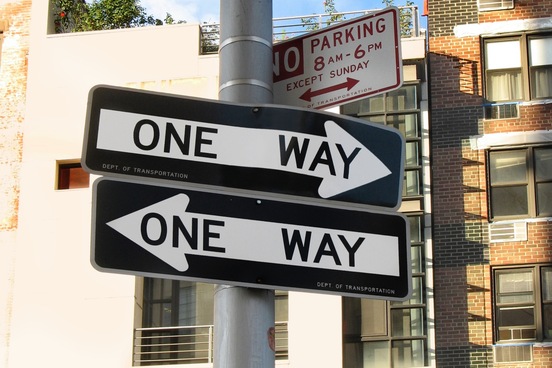This list features our Word of the Day selections from the past year that have received the most Facebook «Likes.»
Definition:
common sense, horse sense; enterprise, initiative
Example:
«Plans for the relocation and expansion of Vacaville’s homeless shelter have hit a snag, but it looks like a little gumption and the city’s support could keep the project from derailing.» — Kimberly K. Fu, Contra Costa (California) Times, July 10, 2011
About the Word:
English speakers have had gumption (the word, that is) since the early 1700s. The term’s exact origins aren’t known, but its earliest known uses are found in British and especially Scottish dialects (which also include the forms rumblegumption and rumgumption).
In its earliest uses, gumption referred to intelligence or common sense, especially when those qualities were combined with high levels of energy. By the 1860s, American English speakers were also using gumption to imply ambition or tenacity, but it wasn’t until the early 1900s that gumption began to appear in English texts as a direct synonym of courage or get-up-and-go.
American showman P.T. Barnum also claimed that gumption named a particular kind of hard cider, but that sense is far from common today.
Definition:
to confuse
Example:
«Several traffic signals around the county seem to be less intuitive than others, judging by some of the mail the Doc receives. One that regularly flummoxes drivers is on northbound Seminole Boulevard at the intersection of Ulmerton Road.» — Lorrie Lykins, St. Petersburg Times (Florida), November 14, 2010
About the Word:
No one is completely sure where the word flummox comes from, but we do know that its first known use is found in Charles Dickens’ 1837 novel The Pickwick Papers and that it had become quite common in both British and American English by the end of the 19th century.
One theory expressed by some etymologists is that it was influenced by flummock, a word of English dialectical origin used to refer to a clumsy person. This flummock may also be the source of the word lummox, which also means «a clumsy person.»
Definition:
to engage in amorous embracing, caressing, and kissing
Example:
«The honeymooners are ubiquitous. They cuddle on the beaches, and they maneuver kayaks across the clear, turquoise waterways. They hold hands and canoodle at dinner in dimly lit restaurants.» — Ron Donoho, San Diego Magazine, January 2009
About the Word:
The origins of canoodle are obscure. Our best guess is that it may come from an English dialect noun of the same spelling meaning «donkey, fool, or foolish lover,» which itself may be an alteration of the word noodle, meaning «a foolish person.»
That noodle in turn may come from noddle, a word for the head. The guess seems reasonable given that, since its appearance in the language around the mid-19th century, canoodle has been most often used jocularly for playful public displays of affection by couples who are head over heels in love.
Definition:
of keen and farsighted penetration and judgment; discerning
Example:
«However, the new learning from Arab and ancient Greek sources recovered in the twelfth century showed that even the most sagacious ancient authors, including the likes of Ptolemy himself, believed in astrology.» — James Hannam, The Genesis of Science, 2011
About the Word:
You might expect the root of sagacious to be sage, which means «wise» or «wise man,» but actually the two words are not all that closely related. Sagacious traces back to sagire, a Latin verb meaning «to perceive keenly.»
It’s also related to the Latin adjective sagus («prophetic»), which is the ancestor of our verb seek. Etymologists believe that sage comes from a different Latin verb, sapere, which means «to taste,» «to have good taste,» or «to be wise.»
Definition:
having a mysterious, holy, or spiritual quality
Example:
«The Flinders [Australia] is an astonishingly evocative, numinous place: a landscape where the centuries, the millennia, the aeons all whisper to you.» — Matthew Engel, Financial Times, September 2, 2011
About the Word:
Numinous is from the Latin word numen, meaning «divine will» or «nod» (it suggests a figurative nodding, of assent or of command, of the divine head).
English speakers have been using numen for centuries with the meaning «a spiritual force or influence.» We began using numinous in the mid-1600s, subsequently endowing it with several senses: «supernatural» or «mysterious» (as in «possessed of a numinous energy force»), «holy» (as in «the numinous atmosphere of the catacombs»), and «appealing to the aesthetic sense» (as in «the numinous nuances of her art»). We also created the nouns numinousness and numinosity, although these are rare.
Definition:
marked by intemperance especially in eating or drinking; sick from excessive indulgence in liquor
Example:
«They were crapulous and carrying blue cans of beer, one of them with a can in each hand.» — Paul Theroux, Ghost Train to the Eastern Star, 2008
About the Word:
Crapulous may sound like a word that you shouldn’t use in polite company, but it actually has a long and perfectly respectable history (although it’s not a particularly kind way to describe someone).
It is derived from the Late Latin adjective crapulosus, which in turn traces back to the Latin word crapula, meaning «intoxication.» Crapula itself comes from a much older Greek word for the headache one gets from drinking.
Crapulous first appeared in print in 1536. Approximately 200 years later, its close cousin crapulence arrived on the scene as a word for sickness caused by drinking. Crapulence later acquired the meaning «great intemperance especially in drinking,» but it is not an especially common word.
Definition:
characterized by triteness or sentimentalism
Example:
«Ironically this bloated historical drama about Hungary’s failed democratic revolution of 1956 evokes nothing less than a Stalinist pageant: everyone on the right side of history is depicted as a morally enlightened superhuman, and a wash of bathetic music every few minutes is supposed to remind you how monumental the situation is.» — Ben Sachs, ChicagoReader.com, September 8, 2011
About the Word:
When English speakers turned apathy into apathetic in the 1700s, using the suffix -etic to turn the noun into the adjective, they were inspired by pathetic, the adjectival form of pathos, from Greek pathētikos.
People also applied that bit of linguistic transformation to coin bathetic. In the 19th century, English speakers added the suffix -etic to bathos, the Greek word for «depth,» which in English has come to mean «triteness» or «excessive sentimentalism.» The result: the ideal adjective for the incredibly commonplace or the overly sentimental.
Definition:
fate
Example:
«Call it kismet or chemistry, but when hip-hop entrepreneur Russell Simmons met yoga instructor Porschla Coleman 10 months ago at a party in Atlanta, they instantly hit it off.» — Lynette Holloway, Ebony, February 2008
About the Word:
Is it your fate to tie macrame while drinking coffee and eating sherbet in a minaret? That would be an unusual destiny, but if it turns out to be your kismet, you will owe much to Turkish and Arabic.
We borrowed kismet from Turkish in the 1800s, but it ultimately derives from the Arabic qisma, meaning «portion» or «lot.»
Several other terms in our bizarre opening question (namely, macrame, coffee, sherbet, and minaret) have roots in those languages too. In the case of macrame and minaret, there is a little French influence as well. Coffee and macrame also have Italian relations, and sherbet has an ancestor in a Persian name for a type of cold drink.
Definition:
an unexpected change or fluctuation; a difficulty or hardship usually beyond one’s control
Example:
«Ten years is a lifetime in the art world, where the vicissitudes of trends and tastes can befuddle the most experienced.» — Scarlet Cheng, Los Angeles Times, January 9, 2011
About the Word:
«Change is not made without inconvenience, even from worse to better,» wrote British theologian Richard Hooker in the 16th century.
That observation may shed some light on vicissitude, a word that can refer simply to the fact of change, or to an instance of it, but that often refers specifically to hardship or difficulty brought about by change. To survive «the vicissitudes of life» is thus to survive life’s ups and downs, with special emphasis on the downs.
Vicissitude is a descendant of the Latin noun vicis, meaning «change» or «alternation,» and it has been a part of the English language since the 16th century. In contemporary usage, it most often occurs in the plural.
Definition:
to depart quickly
Example:
«He raised his handgun and tried to line Reilly down its sight, but there was too much commotion around the agent and Zahed couldn’t get a clean shot. Time to vamoose. With his weapon still in his grip, he leapt behind the wheel of the van, slammed it into drive, and floored it.» — Raymond Khoury, The Templar Salvation, 2010
About the Word:
In the 1820s and ’30s, the American Southwest was rough-and-tumble territory — the true Wild West. English-speaking cowboys, Texas Rangers, and gold prospectors regularly rubbed elbows with Spanish-speaking vaqueros in the local saloons, and a certain amount of linguistic intermixing was inevitable.
One Spanish term that caught on with English speakers was vamos, which means «let’s go.»
Cowpokes and dudes alike adopted the word, at first using a range of spellings and pronunciations that varied considerably in their proximity to the original Spanish form. But when the dust settled, the version most American English speakers were using was vamoose.
Perception:Web definitions for perception
percept: the representation of what is perceived; basic component in the formation of a concept
wordnet.princeton.edu/perl/webwn — Definition in context
Each person starts off with a perceived understanding of what their range of action values and capacities for growth are.
It is up to each person to understand this perception and, if they so choose…to redefine and find new challenges and ways to enhance, change and transform their capacities.
Perception can be limited by «lot» so be careful you don’t settle for anything less than a dynamic sytem of personal values that can only become more broader and inclusive with experience.
I propose using the word «lot’ as a beginning.
A place to root personal beneficial change from.
Not easy
But possible.
gogo
/thumbsup
Haha gogo nice use of terms (and possibly some elliptical notions you are not aware of), hope you understand what you are talking about
There are several discrepancies:
1. Perception: No one starts off with a perceived understanding of what their range of action values and capacities. They are learned, not born with. For instance a baby has the universal capacity to understand all languages in the world but does not interpret it until the he/she hears one sound to another. In such particular case, the baby discriminates from what is useless to him/her. This is inborn then learn, and that is how choosing to accept representation would gradually mold his lot.
As he/she grows up, this is when he/she starts to perceive and analyse of what he/she perceives. There are two sorts of representation false, and true.
Surely, if you had researched more deeply, you would find out that «lot» comes from the school of stoicism. That word coincides with the notion of «representation». Of course, there are many contradictions, but believing in your «lot» does not necessarily mean you have to settle for anything less. On the contrary, you have to do all that is necessary to improve your life in your lot.
For instance: you go on a boat, Prepare all that is necessary to secure safety during travelling. the boat got hit by thunder. your chance of survival is slim to none. but deep down you know you have done all that is necessary to secure your safety. What can you do then ? you accept your lot. You accept the thunder in all its glory
Everyone plays a role in the world’s theater. You were giving a role. But it is up to you to define it and choose how to play it. (That is the representation you talked of) the acceptance of that role (assent), the play of that role (lot).
2. Perception is limited by lot. But lot does not interfere of what you are perceiving per se. You go on the street. you see a beautiful girl. wouldn’t you do anything that is possible to court and woe ?
I propose that you research more deeply before belittling «lot». Lot can be useful to define values of life and to discriminate what is superfluous. You focus more on what you need rather than indulge in excessiveness or things that do not concern you. Finally, lot can be useful in terms of not letting you be tooo ambitious and proud.
One final suggestive reading: «M. Aurelius and His Meditations». He is a Roman Emperor but chose to write philosophy in Greek. Isn’t that Crazy? Greek was once considered (possible still is) the language of philosophy. Nowadays, French is the chic language of philosophers, if I am not mistaken
/thumbsup
We’re back celebrating our Word of the Day! Because there’s plenty left to reminisce about from the last 10 years.
In Part II of our lexical stroll down memory lane (see Part I, 1999–2008, here), we will be examining word selections from 2009–2018, unearthing serendipitous synchronicities and offering perspicacious perspectives into notable events and trends of the last decade.
Oops, just kidding, because our first call out is actually from last year. In tribute to all you bibliophages, we asked some of our favorite authors to select words throughout our birthday month in 2019. Like host of CNN’s The Lead and author of The Outpost and The Hellfire Club Jake Tapper, who chose the first birthday-month word, guddle.
I picked the word of the day! Thanks, @Dictionarycom! https://t.co/iwOy67rWGi
— Jake Tapper (@jaketapper) May 1, 2019
And then came bestselling author of Bad Feminist and Hunger Roxane Gay, who chose the seasonally appropriate word blossom the following week. Award-winning author of Speak and Shout (to name a few) Laurie Halse Anderson chose next, picking the word consent on the third Wednesday of the month to raise awareness around consent-based sexual relations.
Check out more author picks as the logophilic festivities continued. Now, on to those serendipitous words!
cormorant
“a greedy person.”
– March 16, 2009
A cormorant is a type of water bird. But, thanks to its perceived voraciousness, the cormorant can represent gluttony and greed in literature, figured as Satan in Milton’s Paradise Lost and maligned in Shakespeare’s Love’s Labour’s Lost.
We featured this word on March 16, 2009, the date when President Obama expressed outrage at the insurance company AIG giving bonuses to its top executives from taxpayer bailout money, and said he would do everything in his power to stop it. “This is a corporation that finds itself in financial distress due to recklessness and greed,” he said.
suspire
“to sigh; utter with long, sighing breaths.”
– May 22, 2010
We’re pretty sure nobody has this date marked on their calendar as one to remember from the last decade. But, May 22, 2010 was the day Nicolaus Copernicus—the 16th century Polish astronomer who proposed the heliocentric theory of our planetary system, which the Catholic Church came to condemn—was reburied as a hero. Ah, sweet vindication.
We imagine Copernicus somewhere in the great beyond suspiring with an eye-roll … “Finally.”
scurrilous
“grossly or obscenely abusive.”
– April 17, 2011
The word scurrilous is most often used to describe remarks that are vulgar and injurious, as in “He was the victim of scurrilous attacks.” It ultimately comes from Latin scurra meaning “buffoon.” Eighteenth-century lexicographer Samuel Johnson made the connection plain in his definition: “using such language as only the licence [sic] of a buffoon can warrant.”
The word is also used to describe demeanor, as in “the scurrilous imposter.” We wonder if Word of the Day fans found it useful back in April 2011 for talking about a certain, shall we say, graphic new series called Game of Thrones, which premiered the day this word was featured. Winter is coming.
terpsichorean
“pertaining to dancing.”
– November 18, 2012
The year 2012 does not have a monopoly on dancing (you can dance if you want to), but the timing of this word selection brings a smile as it was featured right around the time the South Korean superstar Psy had transfixed viewers with his so-called invisible-horse dance in the megahit “Gangnam Style.”
By November of 2012, “Gangnam Style” was well on its way to a billion views on YouTube (a milestone that was hit a month later). Today “Gangnam Style” has more than 3.3 billion views and counting, and we’re still trying to master his equestrian terpsichorean style.
logomachy
“a dispute about or concerning words.”
– May 7, 2013
Although it may feel like heated disputes about words and their meanings are a new phenomenon (hi, Twitter), we assure you, lexical quibbles are as old as English itself, or at least as old as Early Modern English, when this word choice entered the lexicon (first attested in 1569).
2013 was the year that the word twerk bounced into the spotlight—with a little “help” from Miley Cyrus—and sparked many a debate about its origins and staying power. And, of course, that meant twerk was added to Dictionary.com in 2013 as well (along with a few others that tend to spark logomachies, including selfie, mansplain, and cronut).
meliorism
“the doctrine that the world tends to become better or may be made better by human effort.”
– May 28, 2014
Rooted in the Latin melior, meaning “better,” meliorism came in the middle of a year defined by Black Lives Matter and its campaign for the equality of black people and against the violence they face.
The movement might be considered a powerful example of meliorism. Whether in protests on the streets or through hashtags on social media, its activism seeks to make the world a better place for the marginalized.
e pluribus unum
“out of many, one.”
– July 4, 2015
This unofficial motto of the US, meaning “out of many, one” in Latin and featured on our Great Seal and currency, dates back to the early days of the country, when the original 13 colonies united into a single nation.
Since then, e pluribus unum has evolved to express an idea of American unity in diversity. That belief rang a lot truer for many people when we featured this expression on Independence Day 2015. Just over a week before, the Supreme Court issued a landmark ruling that same-sex marriage is a legal right from sea to shining sea.
suffrage
“the right to vote, especially in a political election.”
– November 8, 2016
Perhaps you’ve noticed a theme as we’ve moved into the mid-2010s. Politics, identity, and language. Increasingly in the news, culture, and social media environment of the 2010s, Word of the Day has become a lens for many users, a way of looking at or reflecting on the affairs of the day. Like suffrage, which we featured on Election Day 2016, marked by the election of Donald Trump to the White House. What did y’all see in this word choice? Is it any different now?
multitudinous
“existing, occurring, or present in great numbers; very numerous.”
– January 21, 2017
The day after the inauguration of Donald Trump met the Women’s March, where over 200,000 people gathered in the nation’s capital—and many millions more across the US and world—in protests for the rights of women and other oppressed groups.
Considered the largest single-day protest in the US, the Women’s March can truly be described as multitudinous, or “very numerous,” the adjective form of multitude.
Minerva
“a woman of great wisdom.”
– March 8, 2018
Speaking of women’s rights, March 8 is International Women’s Day, an apt occasion for Minerva. This word for a wise woman takes up the mantle of the Roman goddess of wisdom and the arts, Minerva, an analog to Athena of ancient Greece. Minerva is also the namesake of Minerva McGonagall, who became Headmistress of Hogwarts in the Harry Potter universe.
Minerva = A woman of great wisdom.
Also Minerva = Headmistress of Hogwarts. #InternationalWomensDay #WordOfTheDayhttps://t.co/NEInx3fBqp pic.twitter.com/0USjYOrXei
— Dictionary.com (@Dictionarycom) March 8, 2018
No matter how far the technology has come since the antediluvian dial-up days of 1999, the appetite—the appetence, edacity, the maw—for Word of the Day remains Brobdingnagian.
Plus, there’s all of you. The real birthday present has been hearing from our readers, who are sharing your favorite Word of the Day selections with us on social media. Your reactions to Word of the Day make it truly great.
Thanks for 20 years, and we look forward to many more. We certainly think they’ve made us … all the wiser.
A monumental event has occurred in my household. I purchased my Word of the Day calendar today. No, you don’t understand. This is *big *for me. I am fascinated by words. This is a helpful passion when a writer. I don’t really even need them arranged in sentences. I save my favorite Word of the Day calendar pages. I sometimes browse dictionary.com the way normal people click through Wikipedia. Synonyms, antonyms, syllables; all of these fascinate me. I’m what you call a logophile.
I often find myself wondering about the etymology of a word, not just its meaning or uses. I mean who really looked at a bowl on the end of a stick and thought «Spoon. Spoon describes that well. I’ll call that spoon.» I enjoy words that sound or feel funny when you say them. Old words, new words, common words, obscure words. Doesn’t matter. If there were a word rehab I would be prime candidate.
In celebration of my new calendar, I present the nerdiest of all geek lists in the following list of my favorite words, their definitions courtesy dictionary.com, and even better, movie lines with each of my favorite words featured. **Bonus geek appreciation points if you can name the movies, because I’m not telling!!!
- spoon: n — utensil for use in eating, stirring, measuring, ladling, etc.,consisting of a small, shallow bowl with a handle.
«Why a spoon, cousin?» «Because it hurts more, you twit!»
- squishy: adj — soft and wet; softly gurgling or splashing; emotional or sentimental
«I shall call him Squishy. And he shall be mine. And he shall be my Squishy.»
- smite: v — to strike or hit hard, with or as with the hand, a stick, or other weapon; to affect mentally or morally with a sudden pang
«Smite me, oh mighty smiter!»
- idiom: n — an expression whose meaning is not predictable from theusual meanings of its constituent elements
«He’s not pushing up daisies, he’s dead!» «It’s an idiom.» «You sir, are the idiom.»
- flesh: n — the soft substance of a human or other animal body,consisting of muscle and fat.
«It’s just a flesh wound! Chicken!»
- irony: n- the use of words to convey a meaning that is the opposite of its literal meaning
«Define ‘irony’. A bunch of idiots dancing on a plane to a song made famous by a band that died in a plane crash.»
- unleash: v — to release from or as if from a leash; set loose to pursue or run at will
«At my signal, unleash h*ll.»
- fiend: n — a diabolically cruel or wicked person
«Wanna know how I got these scars? My father was a drinker and a fiend…Why so serious?»
- carpet: n — a heavy fabric, commonly of wool or nylon, for covering floors.
«Will someone get this walking carpet out of my way?»
Ok, I can’t do any post having anything to do with movie quotes without the following. They don’t have any of my favorite words in them, but they do have words. Good enough for me.
«Hello. My name is Inigo Montoya. You killed my father. Prepare to die.
«You’re gonna need a bigger boat.»
And the final shout out to all lover of words and words in movies is my final quote.
«Wait a minute, wait a minute! You ain’t heard nothin’ yet!»
Every now and then the nerd to my geek must make an appearance. All things must stay in balance. For more on words and love thereof, check out my fellow GeekMom, Ellen Henderson, and her list of extinct words.
-
UMBRELLA is my favorite words. It is a strong word besides loving its sound.
-
Exquisite is my favorite word….
-
It’s difficult to choose only one word, for I like many words. Two words I like the most are: satisfied & complacent, cuz my name “Radia” in my language, Arabic, means that. I like the sound of satisfied and the meaning of complacent as it means so satisfied. I also like the word courageous. Radia, Libya.
-
I like the word “sunshine” the most. Its warmth, glittering and spirituous. It shows a good start, hope and yet…lucky! I wanna be “sunshine in the rain”
-
MY favorite word is wherever, because it sounds good…
Fabiola -
My favorite is SOURCE… =]
It just sounds very nice and the meaning is great! -
My favourite word is APPRECIATE…
-
My favorite word is zucchini ^^ It sounds great !!!!
-
One of my favourite word is enthusiastic (sorry, I know I’m not being very original), it took me ages to be able to pronounce it correctly! I also like outrageous and forerunner.
-
My favorite word is resplendent. It sounds as grand as the sun
-
my favorite words are serenity mmm..and serendipity…oh and sentinel…
I love the way they sssound 🙂 -
‘Indigo” is great – it manages to sound both cozy and dangerous.
-
One of my favourite English words is EXTRAORDINARY! Firstly because of the pronounciation, especially when being uttered by my Brittish friends, secondly due to its meaning which is so “out of the way”! =)
I also love the words HILLARIOUS, FABULOUS and BRILLIANT! Same too reasons! -
Well, my favourite English word would be “bee”. I don’t know, it just sounds so cute and you instantly can imagine the sound of bees. And you might forget that they can sting, too. So yeah, that’s my favourite word.
-
I love the word ‘procrastination’ because it doesn’t exist in my mother tongue (German), because it sounds sophisticated and because I can use it to tell people in a nice way that they should get their work done 😉
-
My favorite English word is “perhaps” I like to pronounce it and the sound when someone else pronounce it.
-
My favourite English word is “LOVE”…….. 🙂
-
My favorite word is “Serendipity” The first time I heard about this word was in a movie….I like it for its meaning and because in my mother tongue, Spanish, there is not a word that means the same.
-
“payday”.. no seriously.. well half-seriously “acquiese” or “lascivious” 😉
-
that should be “acquiesce”.. can’t spell so why do I teach English??
-
My favorite English word is “twilight” because it asociates with two lovely things bird twitting and day light )
-
I definitely love the sound of “scissors”: you can feel how paper is cut when you pronounce it. And also “Malmsey”, which reminds me of my English History lessons at university…. the Tudors always drank that wine in my teacher’s opinion. Some years later I travelled to Sicily and tasted the local variety of it… Wonderful! Finally, 2 more words: “pristine” and “gorgeous”.
-
hey guys what do you think of..
UBIQUITOUS?
i think it’s cool.
-
My favourite is LOVELY…. it has a very nice pronuciation with my Slovak accent.
-
My favourite English word is “compassion” firstly because of the meaning and also because it includes the word “passion” which is another word I love- thus I get 2 for the price of 1…it’s great-I don’t have to choose between the 2 words!
-
Kerfuffle
-
My favorite word is OBLIVION. It sound magical and it evokes the sea and the mountains.
-
i love to use PLEASURE in my sentences 🙂
-
My favourite English word is an expression actually:” two thumbs up”;
I like this expression because when you say it you use your fingers and body as well and usually when someone speaks he uses his whole body to communicate.
Morevoer this expression can initiate others like: three thumbs up or ten thumbs up or two hands up etc…….that’s why I do like these words together! -
“Ombudsman” is Swedish, “zucchini” is Italian – English is such a fabulous language – constantly adorning itself with jewels from multicultural crowns. By the way, “slut” comes from “slattern” which means a sloppy housekeeper, NOTHING to do with loose morals! My favourite word is “voluptuous”, especially as pronounced by an old Finnish friend of mine who used to say “volumptuous” !!!
-
My favorite words are all the performative verbs (promise, forbid, invite, swear, declare etc) not because of their sound but rather because of their power to convey the kind of speech act being performed.
Claudio Silva -
My favorite word in English is ‘knowledge’, because I think sounds good! HAHAHA’
-
My favorite English word is definitely “procrastination”. It just sounds good and it’s a very useful word. We also have an equivalent in Spanish (procrastinar), though we don’t use it as often.
-
“tangerine ” because it sounds as it tastes:sour and sweet
-
My favourite English word is “candy” because is sweet
-
I hated MENAGERIE as a child. It made me itch. I see someone wrote RENDEZVOUS. This reminds me of George W, who apparently said that the French were no good in business because they didn’t have a word for ENTREPRENEUR. Well, well!!
-
I really like the word WINNINGEST which I gather is used by sports announcers in the States. In the U.K. we never use that word but it is such a funny (and useful) word!
Also on the Simpsons they used that word EMBIGGENS, as in “A noble spirit embiggens the smallest man”.
It’s amazing how these words start off tongue in cheek but end up being used day to day.
-
I think I went thru about a 1/4 of the comments before someone said a “true” English word … one that has Anglo-Germanic roots rather than a Latinate or Greek-rooted word. That’s kind of sad.
The one that I like the best … bedoven … means to be drenched or drowned (ppl from archaic bedive). For byspel: After walking thru the jungle, he was bedoven with sweat.
-
My favorite English word is “TOUCH”. It sounds great!!!
-
my best word is WEIRD. I love the pronunciation
-
i like to us the word ‘SIBLINGS because it sounds very good when we use it instead saying brothers and sisters
-
My favourite word is awkward. Maybe because of its structure.I really love to use it everyday ! 😀 :))))
-
My favourite word is “super”. It is easily recognized and frequently used by almost everybody!
-
My favourite word is ‘forlorn’, which I heard first in John Keat’s Ode to a Nightingale. I just love how it sounds, because it’s true, “the very word is like a bell”.
I also like other English words such as ‘solace’ (the very sound of the word transmits softness and calm), ‘dearest’ (it sounds very tender and endearing), ‘sojourn’ (I find it graceful)… -
my favorite word in English is : AWESOME . and i use it a lot
Тренировка произношения
Нажмите на микрофон и произнесите текст. Нажмите стоп.
У вас отличное произношение 😎
У вас хорошее произношение, но стоит еще потренироваться 👍
Попробуйте еще раз 🙁
Микрофон заблокирован
Инструкция по включению микрофона:
Google Chrome
Opera
После включения микрофона, перезагрузите страницу.
Ваш браузер не поддерживает запись с микрофона.
Мы рекомендуем Google Chrome для компьютеров и Safari для ios.
Прослушать себя
Зарегистрируйтесь, чтобы сохранять свои произношения
Закрыть










